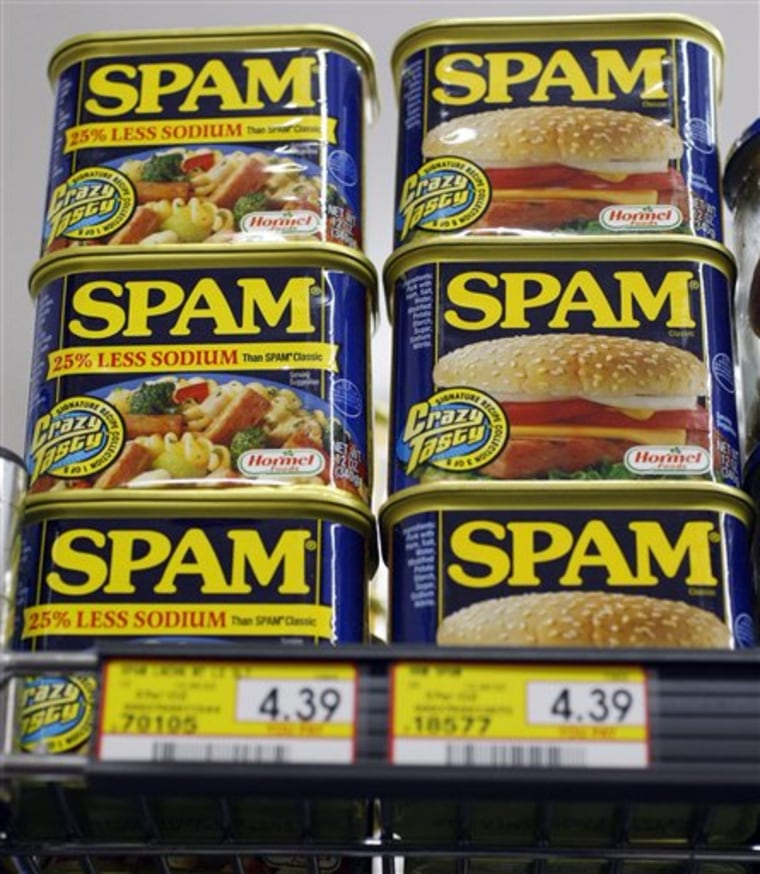Hormel Foods said Tuesday its fourth-quarter profit rose more than 50 percent, helped by lower ingredient costs even as sales slipped on lower meat prices and a continuing pullback in consumer spending on pricier items like microwave meals.
The company called the quarter's sales "disappointing" and blamed the weak economy. However, it said sales of Hormel chili grew. It also says it expects better earnings next year.
The maker of Spam said it earned $103.9 million, or 77 cents per share, in the three months ending Oct. 25.
Revenue fell 10 percent to $1.68 billion.
According to Thomson Reuters, analysts predicted earnings of 68 cents per share on revenue of $1.82 billion.
Hormel earned $2.53 a share for fiscal 2009 and set its 2010 outlook 10 to 20 cents higher.
Shares rose 51 cents to $39.40 in premarket trading, above the company's 52-week high of $39.04.
Hormel, based in Austin, Minn., has benefited along with other food makers as consumers limit their spending and eat at home in response to the recession.
Its lower-priced foods like its namesake chili and its famed meat-in-a-can Spam have been rising in at least the past year as consumers look for value.
But shoppers' focus on the bottom line has hurt the company when it tries to sell more expensive products, such as microwavable meals, which can make the company more money. Hormel also noted consumers limited their purchases of its higher-priced items in its Jennie-O Turkey Store, which accounts for 20 percent of net sales.
The turkey segment's performance improved in the quarter, however, marking a continuing turnaround in the meat industry. The meat industry had been hurting since at least the summer of 2008 as costs for items like corn rose to record highs and a slump in demand — brought on by a drop in restaurant visits by consumers — made it difficult for meat producers to raise prices.
But feed costs have fallen and producers like Hormel have been shedding production, which means they don't have to spend as much to raise meat like turkey, and can be more nimble to raise prices. Sales in that segment slipped 9.8 percent to $337.5 million, even as the company launched marketing for the Jennie-O brand in the quarter to push sales. But segment profits rose nearly 6 percent.
Revenue in refrigerated foods, which counts for about half of the company's sales, fell 9 percent to $857.2 million, although profit rose 23 percent on strong sales of more expensive products like Hormel pepperoni, the DiLusso Deli Company product lines and other products. The segment's sales were soft due to drops in demand from food-service outlets such as restaurants and falling prices for pork, ham and bacon.
For the year, the company's revenue fell 3.3 percent to $6.53 billion.
